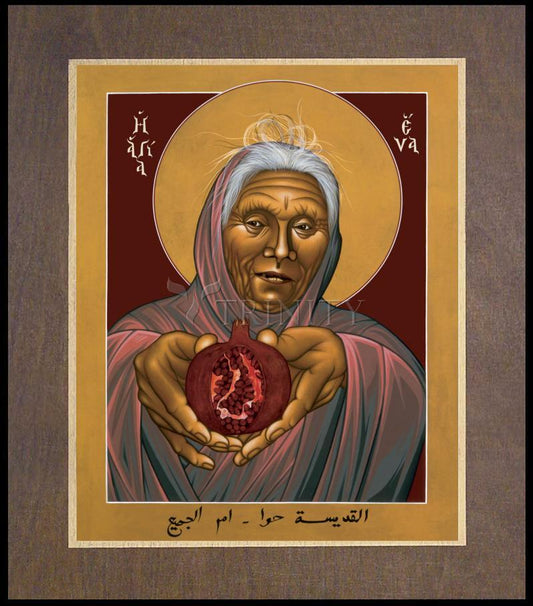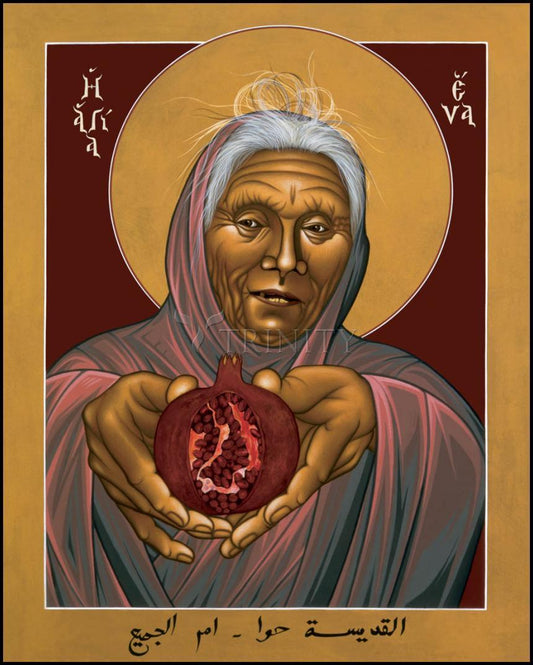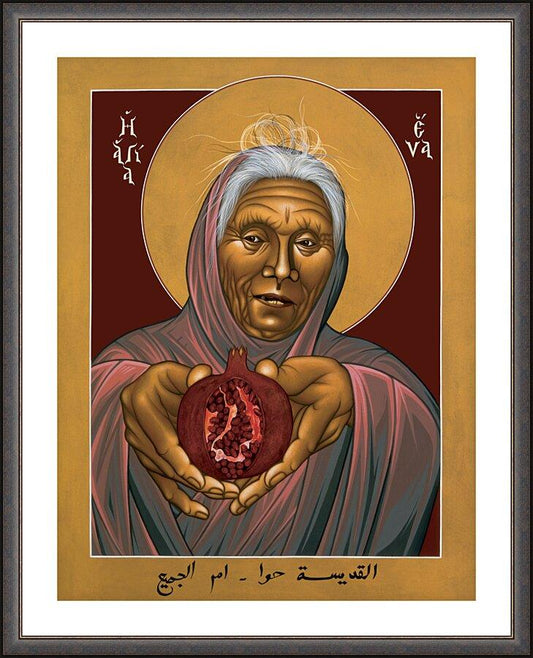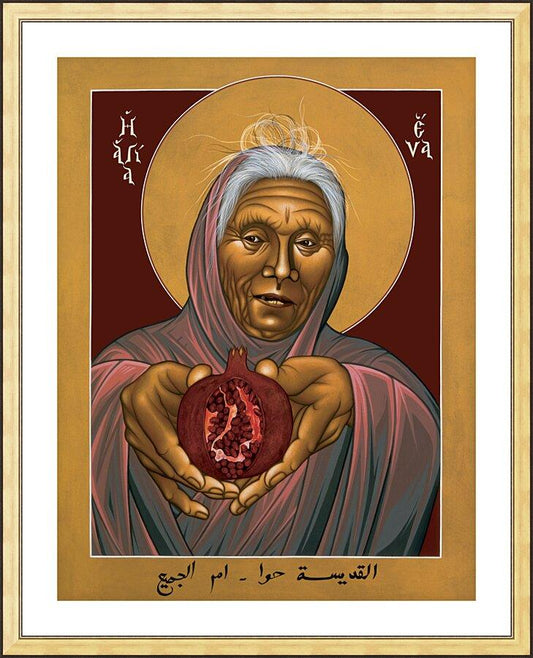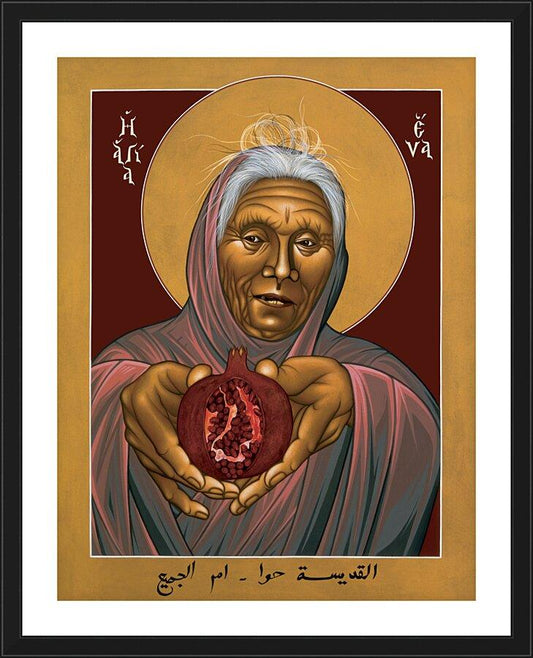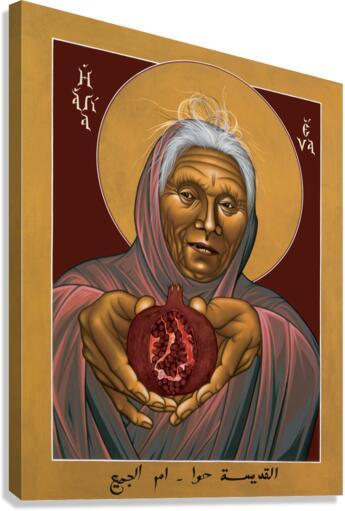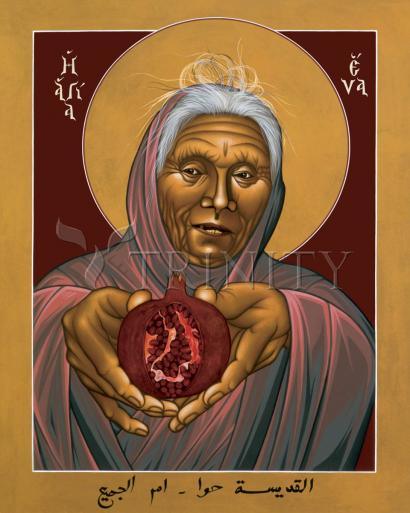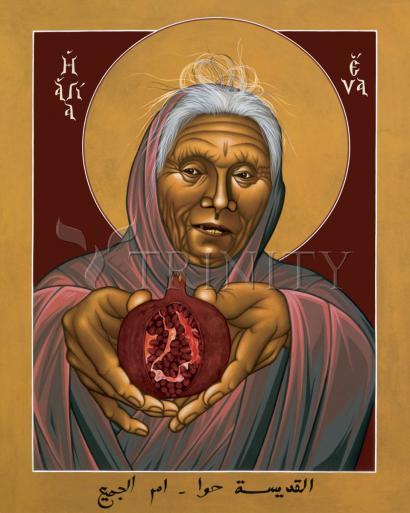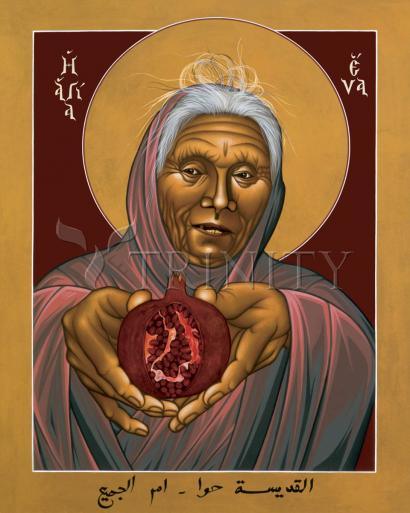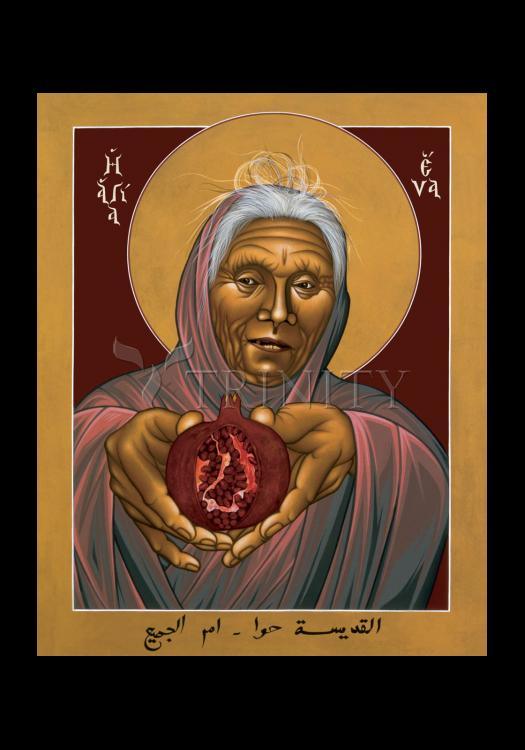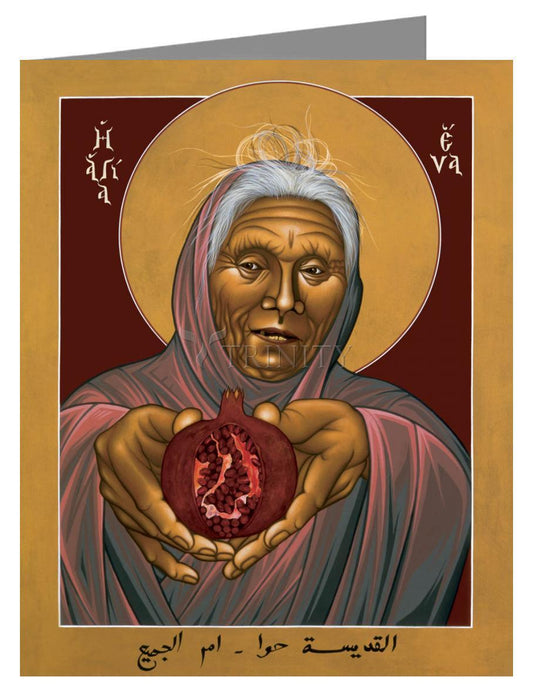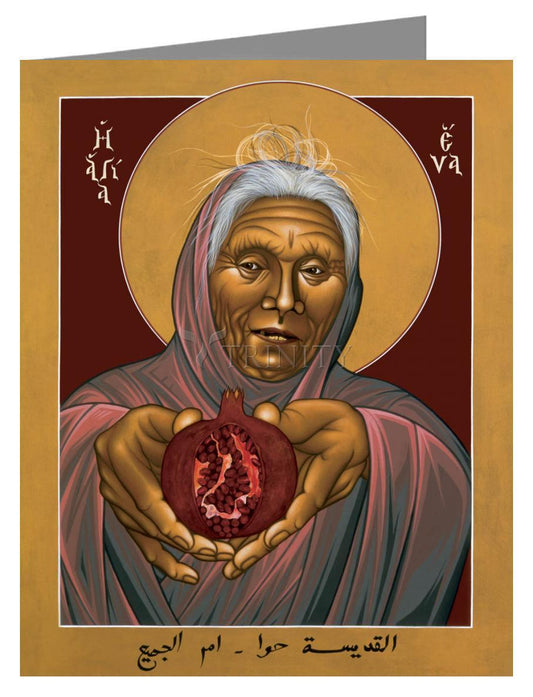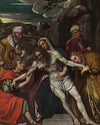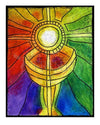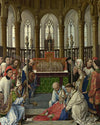There is something especially significant about Eve, who is described in Genesis 3:20 as the mother of all living. Her name, which means "life" or "life-giving," was given to her by Adam immediately after her recognition and confession of her sin in disobeying the Creator, and immediately before her participation in the sin-covering efficacy of the animal slain in Eden to provide the coats of skin. Eve is far more than a genealogical forebear of the human family. She is the forebear of the spiritual human family born, created, or taken out of the side of him who had been provided from the foundation of the age to bring forth the glory of Him who created her. The first Adam was literal and also represented the second Adam. The first Eve was literal and also represented the second Eve, the ecclesia, the bride of her Lord and Savior, Jesus Christ.
The miracle of Eve's creation is predictive of the miracle of salvation. As she was taken out of the side of Adam by an operation requiring the shedding of blood, so the second Eve is to be taken out of the side of her acknowledged Lord and husband through a typical blood-shedding ceremony or arrangement. This ceremony was the offering of animals under the Mosaic and pre-Mosaic economies and the act of baptism since the efficacious sacrifice of our Lord and Savior. No one is born unto salvation without this necessary extraction from the side of the antitypical second Adam.
The creation of the bride of Christ results in an understanding that our life derives from him, not our physical day to day existence, but our inner man, our spiritual Christ-man. We acknowledge that we have been created anew in and from him, endeavoring to the best of our ability to render unto him our sincere and contrite service in an effort to abide by his standards and attitudes so that we may honor him and give glory to his name. We readily see that the creation of the first pair was far greater than a historical fact. The true spirit beauty of the creation is seen in the allegory or type.
In the account of inspiration given in Genesis 3 there is revealed the outline of the plan of salvation, or the gospel. Remember, the gospel is the power of God unto salvation to everyone that believeth, (Rom. 1:16) so if Adam, Eve, Abel or Seth are to be recipients of this power unto salvation, they must be connected to the gospel. Following the external enticement of the serpent, the woman's sin in eating of the forbidden fruit, man's sharing or participating in the sin, and their ineffectual device of fig leaves to hide their nakedness, "they heard the voice of the Lord God walking in the garden in the cool of the day." The inception of this recognition of wrong-doing and the dialogue that followed in verses 9-19 established the principles of salvation.
There must be belief of the supremacy and authority of God; there must be an awareness of estrangement because of sin; there must be belief in the Seed of the woman (Christ is the only one born of a woman without man's intervention) and of his purpose to bruise the seed of the serpent a telling blow in the head; there must be awareness of the necessity for probation (shown in the woman's role of conceiving and her subservience to her husband and in man's toiling "in the sweat of thy face" to provide for his sustenance); and there must be seen by the aspirants of salvation the principles of an atonement to effectively remove the effects of death incurred by the sin of the first pair.
This outline of salvation remains unchanged throughout the scriptural record. It is elaborated upon and expanded to include details such as the specifics of the terrestrial kingdom, but the substance of man's relation to sin and death and the reconciliation wrought by Christ never changes. If it did, then God would be capricious and a liar, and this is contrary to his being and to the divine revelation. "My covenant will I not break, nor alter the thing that is gone out of my lips. Once I have sworn by my holiness that I will not lie unto David. His seed shall endure forever, and his throne as the sun before me." (Psa. 89:34-36)
In the announcement (or sentence) to the as yet unnamed woman that certain unfavorable conditions were to be established with her (vs. 16), one of the significant conditions was, "and thy desire shall be to thy husband, and he shall rule over thee." The clearer meaning of this is, "and thy restoration shall be subject to thy husband [Christ], and he shall rule over thee." See Genesis 4:7 where Cain was wroth concerning his improper sacrifice that did not regard the blood-shedding principle, and the Lord spoke unto him, "If thou does well, shalt thou not be accepted? and if thou doest not well, sin [a sin-offering] lieth [coucheth] at the door. And unto thee shall be his desire [restoration], and thou shalt rule over him."
In Cain's dilemma, restoration was achievable through a proper sin-offering, but he did not avail himself of it. As the prospective bride of Christ, our restoration is subject to and depends upon our husband, Christ, we recognize that he effectively offered a sacrifice for himself as well as us, and that he rules over us in specifying the way of holiness in which we are to walk daily to indicate our esteem for him and our desire to promote his glory.
When Adam and Eve heard the voice of the Lord God walking in the garden in the cool of the day, it is likely that a thorough discussion of the transgression, its consequences and its remedy, took place. This is the sense of the dialogue in verses 9-19 which culminated in the sacrificing of the animal which provided the coats of skin. The word "cool" in the original is ruach, which is frequently translated as "breath" or "spirit." The sense seems to be that God's spirit or breathing, was being manifested in speech form to Adam and Eve to instruct them of the gospel narrative. Certainly it seems to be inconsequential as to whether the temperature was cool or hot.
It is very common for Christadelphians to regard the statements of both Adam and Eve in verses 12 and 13 as placing the blame for the transgression on someone else. Dr. Thomas does this in Elpis Israel. But we are dealing with more than the human aspect here; we are dealing with the proper instruction and the correct introduction into the way of life or salvation. When Adam said, "The woman whom thou gavest to be with me, she gave me of the tree, and I did eat," he was not blaming the woman, he was clearly confessing that he had done wrong. He was saying that he was guilty of disobeying the Edenic law of Genesis 2:17, and there were no extenuating circumstances - "I did eat." Likewise, Eve made a similar confession of her wrong, "The serpent beguiled me, and I did eat." The person who comes to God seeking His favor and His redemption must be able to recognize his native condition, and to confess his sins before Him as a condition to entering into a covenant with Him. No confession or contriteness or recognition of Divine law, no covenant. Outside of the covenants of promise, no hope.
So the account in Genesis 3 may be summarized in this way: disobedience resulting in the imposition of the death sentence as required by Genesis 2:17; (see also Rom. 5:12,18)
ineffective device for atonement; instruction in God's way; confession of sin; appreciation and recognition of the role of the Seed of the woman and of a probationary walk; and entering into covenant representative of the slain Lamb who would ultimately take away the effects of sin and death.
This is the gospel. When Adam perceived this program, he then was able to call his wife's name Eve, for she was to be the mother of all living; not merely the entire human family, but the living involved with the life that shall not pass away for those provisionally justified by Christ's blood and who will, if found faithful, be permanently justified by putting on immortality at the judgment seat of Christ when he returns and gathers his saints unto him, those that have made a covenant with him by sacrifice.
(Psa. 50:5)
The role of Eve was to reciprocate the intelligence of man out of whom she was taken, to minister to his desires and rejoice with him in the delights of creation. The antitypical Eve is to reciprocate the spiritual intelligence of her husband (Christ) out of whom she is taken, to rejoice in the prospect of the creation of the new age when there will be a new heaven and a new earth wherein dwelleth righteousness, or a millennium of glory. While she awaits this glorious prospect she, as the ecclesia of Christ, is instructed to adorn herself "in modest apparel, with shamefacedness [modesty, reverence, aidos] and sobriety; not with braided hair, or gold, or pearls, or costly array; but (which becometh women professing godliness) with good works. Let the women learn in silence with all subjection. But I suffer not a woman to teach, nor to usurp authority over the man, but to be in silence." (I Tim. 2:9-12) When we review the thoughts of these verses we recognize a teaching on the natural plane in present life, but the higher teaching is that Christ is the man and we are the woman collectively, and the guidelines are specific. We are too be in subjection to him in all things and not to usurp his authority.
Adam was formed sinless as was Eve. There is a reason for his first being formed, and the secondary and supportive role of the woman. He preceded the woman because he was the crowning glory of God's creation and intended to reflect His glory in character and eventually in nature. Eve was formed out of (ek) the man to support and honor the man. For this reason it would have been inappropriate for Adam to first sin and then pass the opportunity on to the woman. "For Adam was first formed, then Eve; and Adam was not deceived, but the woman being deceived was in the transgression: Notwithstanding she shall be saved in childbearing [the Seed of the woman], if they continue in faith and love and holiness with sobriety."
(I Tim. 2:13-15)



